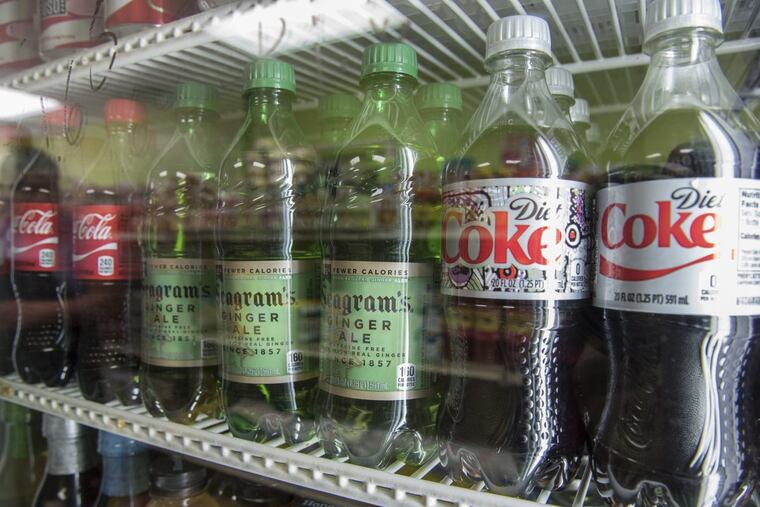Tax on sugary beverages is a good thing
The beverage tax has made people make healthier choices.

As many parents know, chauffeuring is high on the list of duties when you have kids. I don't mind, because I want to make sure they are safe, car trips give me an opportunity to check in with them and their friends, and, of course, according to my children, I have nothing better to do with my time.
During a recent ride home, my daughter's friend astutely pointed out that since the enactment of the beverage tax in Philadelphia, the cost of a soda now rivals that of a beer. "First," I said, "I'm not even sure if this is true. Second, why do you know, or even have interest in, the cost of beer?" My daughter then tells her friend about our long-standing family beverage policy – that if I have a beer, the kids can have a soda. We have always had a soda-free home except for special occasions such as family barbecues and parties. I guess you can consider us social drinkers, and soda and beer are viewed as treats.
Of course, that's not true in many households. As a Gallup poll points out, despite the knowledge that sugar-sweetened beverages are bad for us, nearly half of Americans drink 2.6 glasses of soda per day. The rates of consumption are even higher with young adults. And, it is having a devastating impact on our health.
I support beverage taxes because evidence shows that they encourage people to choose more healthy beverages and thus helps reduce the toll of preventable diseases.
Those who argue that beverage taxes are bad should note the recent study, which examined the penny per ounce sugar-sweetened beverage (SSB) excise tax enacted in Berkeley, Calif., in March 2015. Researchers found that that taxing soda does not result in higher grocery bills or lower sales, but does seem to encourage people to make healthier choices. Sales of taxed beverages did fall 9.6 percent but overall beverage sales rose, due in large part to a 15.6 percent increase in sales of bottled water.
This is encouraging news for Philadelphia where the 1.5 cents-per-ounce tax went in effect on Jan. 1. Critics of the tax will quickly point out that Philadelphia is not Berkeley. It is not. Philadelphia is larger, poorer and sicker. We have big problems in our city and we must be intentional and creative, and have the strong resolve to solve them.
Of the nation's 10 largest cities, Philadelphia has the highest deep poverty rate of 12.3 percent. This is about double the national rate and a major driver for poor health. For so many of our families, poverty has been and will be passed on.
Quality education is one of the keys to escaping poverty, but poverty remains the biggest obstacle to quality education. Revenue from the tax will be used for 2,000 pre-K slots, improving children's chances to break the cycle of poverty.
In Philadelphia, almost seven of 10 adults and four out of 10 children are overweight or obese, and, almost two of 10 adults have diabetes. One in three children born in Philadelphia today, including half of Latino and African-American children, are expected to develop diabetes in their lifetimes.
Sugar-sweetened beverage consumption is linked to obesity, diabetes, cardiovascular risk factors and dental decay, among other poor health conditions. Researchers from Harvard University project that Philadelphia's beverage tax will prevent thousands of cases of obesity and diabetes, increase healthy life years and save more in future health care costs than it costs to implement.
In addition, community schools and improvements to parks and recreation centers will help people in neighborhoods become more active and connected to health promotion efforts.
As I pointed out to my daughter and her friends, change is hard, but has to start somewhere. The beverage tax may be controversial but it is impossible and short-sighted to divorce it, and its positive effects, from the accumulation of challenges facing Philadelphia. The beverage tax is a worthwhile investment that raises much-needed revenue for city services and helps move people toward healthier lives.
Dwayne Wharton is the director of External Affairs with The Food Trust and a participant in the Allies Reaching for Community Health Equity Public Voices Fellowship with The OpEd Project.